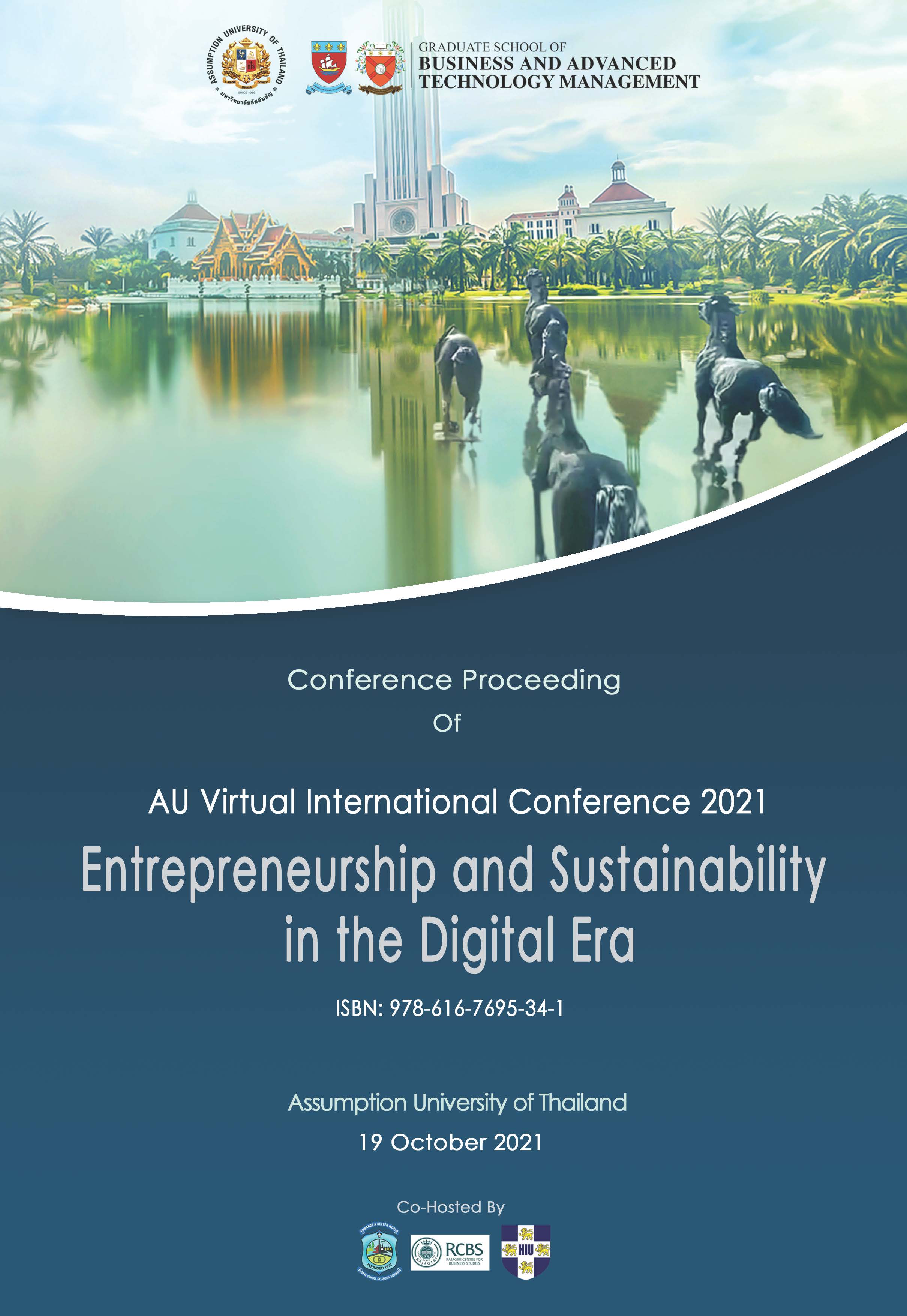The Long Run Impact of Major Exchange Rate Return Volatility on Sectoral Stock Market Return Volatility: A Case Study of Financial Sectors in Thailand
Keywords:
exchange rate return volatility, sectorial stock market return volatility, ARMA, EGARCH, TARCH, Granger Causality TestAbstract
The main objective of the study is to investigate the impact of return volatilities of major exchange rates on sectoral stock market return volatilities in Thailand. This study used daily time-series data from January 2018 to January 2021. In addition, the study applied the Autoregressive integrated moving average model (ARMA), the Exponential Generalized Autoregressive Conditional Heteroscedasticity (EGARCH), the Threshold Autoregressive Conditional Heteroscedasticity (TARCH), and Granger Causality analysis to measure the long-run effect of the volatilities of exchange rates to sectorial stock market indexes. The result of this study shows that the volatility of US Dollar exchange rate has strongly affected on the volatility of the banking sector index. The volatilities of EURO, Japanese Yen have a significant impact on the volatility of the Finance & Securities sector. The Insurance sector receives only impact from US dollar exchange rate volatility. Overall, most of the return volatilities of exchange rates have significant effects to Thailand’s financial sectors stock market indexes, and those exchange rate volatilities should be concerned when investors make their investment decisions.
Downloads
Published
How to Cite
Issue
Section
License
Copyright (c) 2021 AU Virtual International Conference Entrepreneurship and Sustainability in the Digital Era

This work is licensed under a Creative Commons Attribution-NonCommercial-NoDerivatives 4.0 International License.

